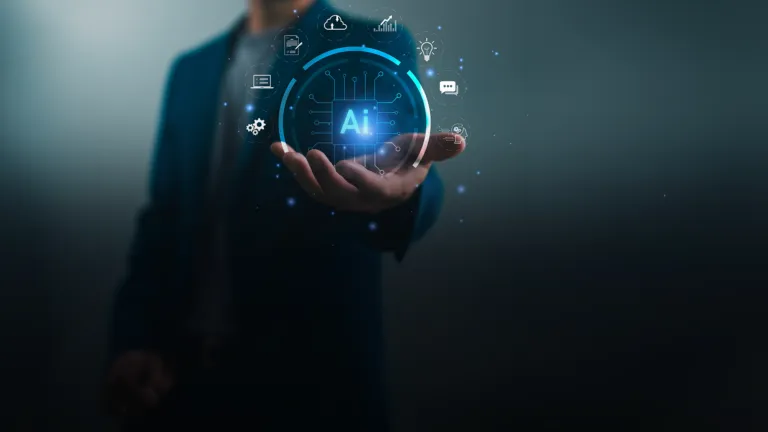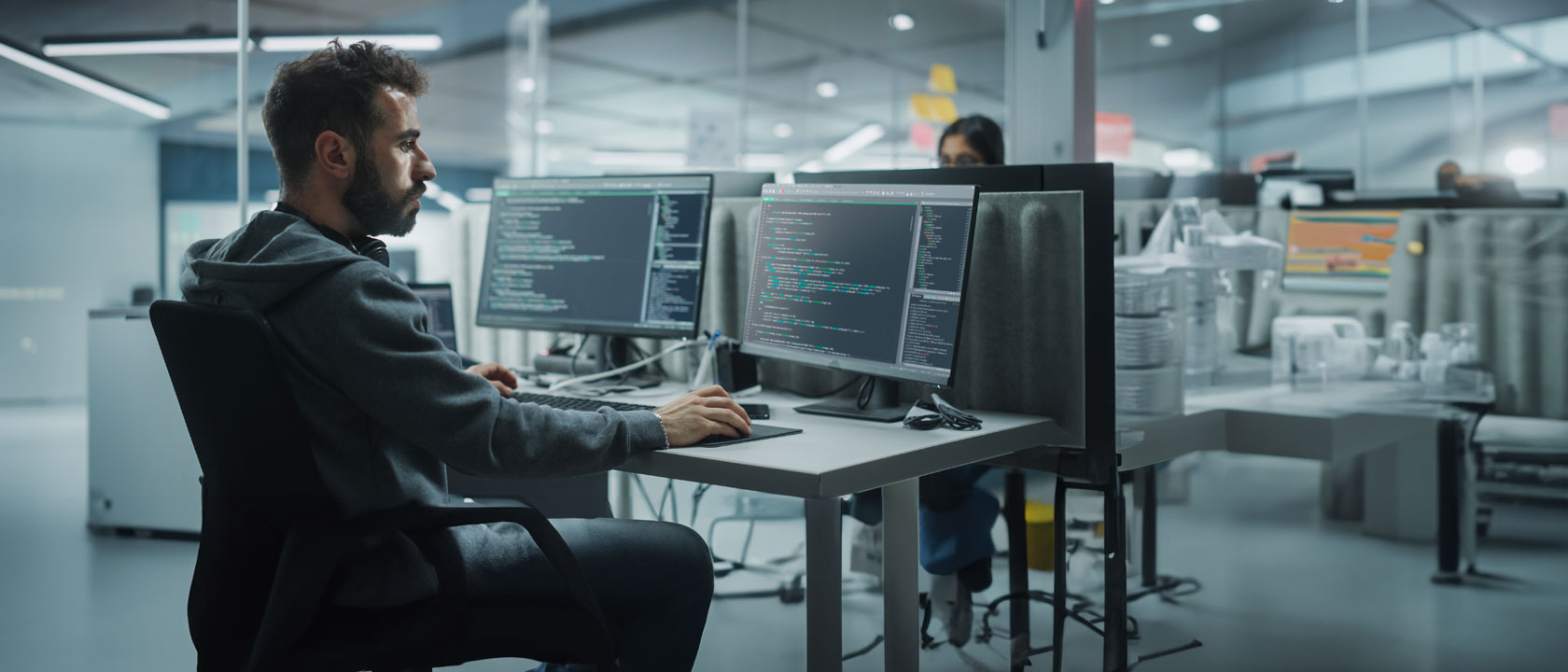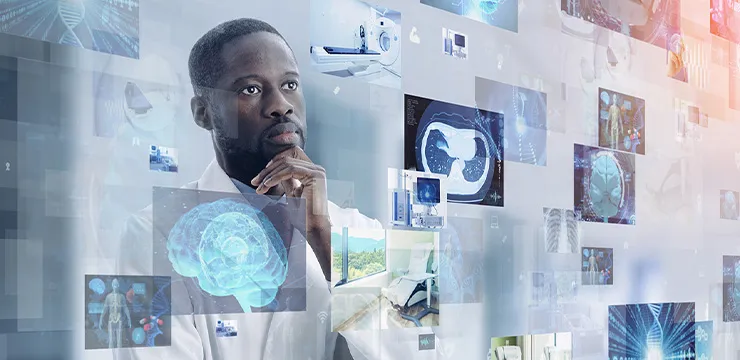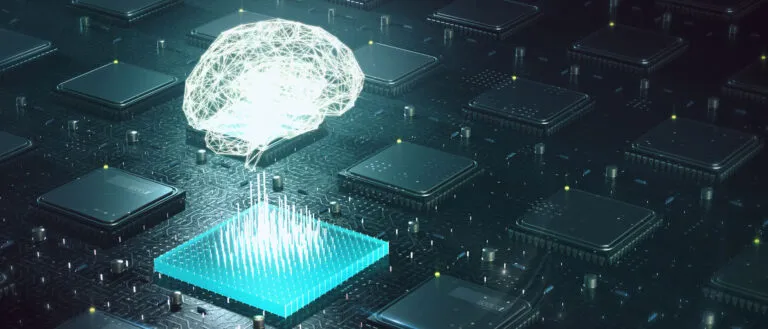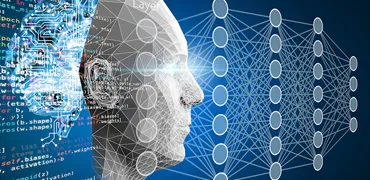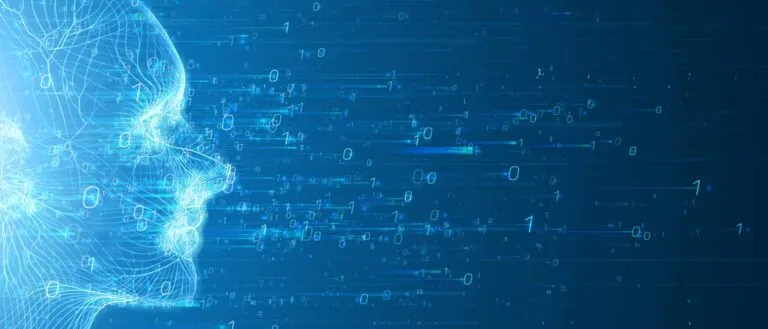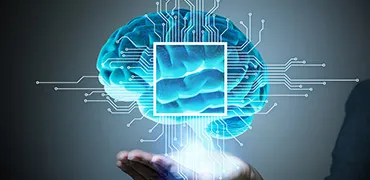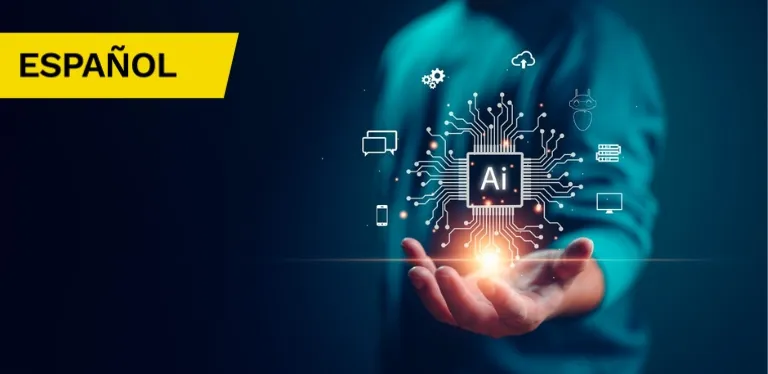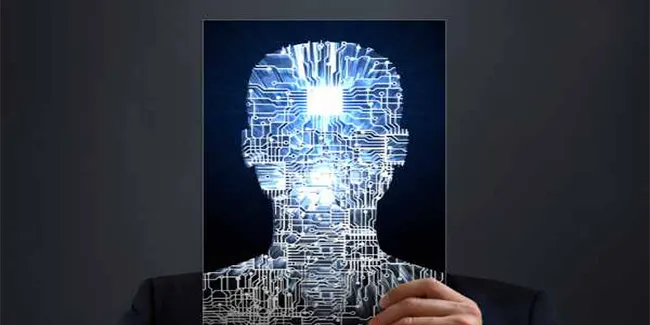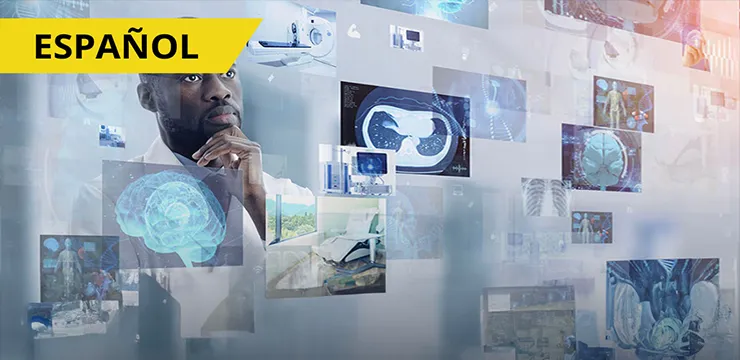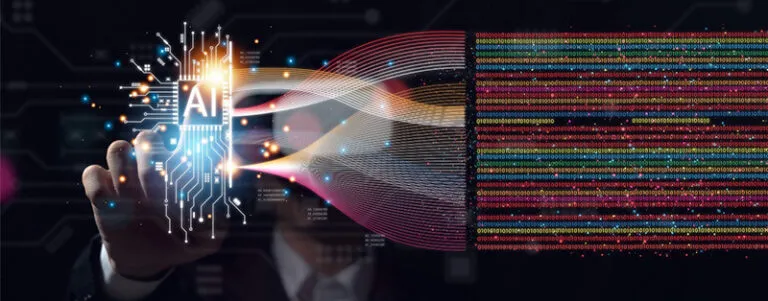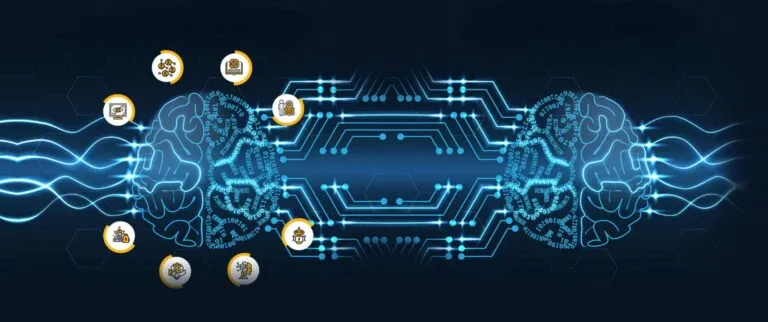What Jobs Will AI Replace? What Can You Do to Protect Yourself?

- How is AI Changing the Job Market?
- Jobs That Will Be Replaced by AI and Why?
- What to Do if Your Job is at Risk of Being Taken Over by AI?
- Jobs That Will Not be Replaced by AI
- What are the Long-Term Implications of AI on Employment?
- What are the Advantages and Disadvantages of AI Replacing Jobs?
- Can AI Create New Job Opportunities?
- Be Prepared for the Future with Emeritus Courses
Around 94% of the 2,629 business leaders surveyed by Deloitte believe Artificial Intelligence (AI) is critical for success. If that is the view in the upper echelons of business, professionals will inevitably ask themselves: what jobs will AI replace? This blog will discuss how AI affects job opportunities, and also changes the way we work. Additionally, we will also look at jobs that are likely to still exist in the future. Further, we will talk about how workers can prepare for the changes in the job market.
How is AI Changing the Job Market?

Artificial intelligence is rapidly changing the job market, and its impact will be felt for the foreseeable future. After all, the advancement of AI technology has resulted in machines performing tasks previously handled by humans. Inevitably, this has raised concerns about what jobs will AI replace in the future. For instance, AI-powered machines will most likely automate data entry, routine customer service, and assembly line work. They are repetitive and require minimal decision-making. As a result, these industries may lay off some workers, forcing them to learn new skills or seek work in other sectors.
However, AI’s impact on the labor market is also positive. As a matter of fact, AI is opening up new opportunities in fields such as machine learning, data analytics, and robotics, all requiring specialized knowledge and skills. Furthermore, AI can improve human capabilities in areas such as healthcare, finance, and education, opening up new roles and job opportunities.
ALSO READ: 10 Highest-Paying AI Jobs: The Best Options to Choose From
Jobs That Will Be Replaced by AI and Why?
As discussed above, the advancement of AI technology creates efficiencies and new opportunities. On the other hand, it also puts some job roles at risk of being replaced. Let’s take a closer look at what jobs AI will replace:
- Data Entry: AI-powered machines can perform data entry tasks faster and more accurately than humans
- Customer Service: AI chatbots and voice assistants can handle routine customer service queries, reducing the need for human interaction
- Assembly Line: Robots can perform repetitive assembly line tasks faster and more consistently than humans
- Bookkeeping and Record-Keeping: AI software is more efficient than humans at managing financial and administrative records
- Driving: Self-driving cars and delivery drones have the potential to replace jobs in transportation and logistics
- Agriculture: Automated machines can monitor and manage crops more efficiently than humans, potentially replacing agricultural jobs
ALSO READ: 5 Top Emerging Trends That Will Define the Workforce of the Future
What to Do if Your Job is at Risk of Being Taken Over by AI?
Professionals are understandably worried about what jobs AI will replace soon. Instead, here are some strategies to tackle this fear and become less vulnerable to these changes:
1. Develop Difficult-to-Automate Skills
Jobs requiring creativity, complex decision-making, and interpersonal skills are less likely to be automated. As a result, professionals should prioritize the development of skills such as critical thinking, problem-solving, and emotional intelligence.
2. Embrace New Technology
Professionals should stay current on new technologies and embrace new tools and platforms. Additionally, these tools and platforms can improve their skills and job performance.
3. Reskill and Upskill
Opportunities in other areas will emerge as some job roles become automated. Therefore, professionals should consider reskilling and/or upskilling to prepare for high-demand new roles.
4. Focus on Lifelong Learning
Due to accelerating technological change, professionals must constantly learn and adapt to remain competitive in the job market.
5. Consider Entrepreneurship
Consider freelancing or starting a business for job security in a changing market.
Jobs That Will Not be Replaced by AI
We have taken a look at what jobs AI will replace. Now, let’s list the trending jobs that are likely to be safe from AI:
- Cybersecurity: Professionals with skills in data security, encryption, and threat intelligence are expected to be in high demand as cybersecurity threats become more complex
- Digital marketing: The human touch is still necessary for creative content development and strategy, even though AI can automate some aspects of digital marketing, such as data analysis and advertising optimization
- Healthcare: AI is less likely to replace jobs in healthcare, such as nursing, physical therapy, and mental health counseling. After all, these jobs require empathy, social interaction, and complex decision-making, which the AI can’t replicate
- Environmental science: Companies and governments predict job growth in environmental science. Therefore, fields such as renewable energy and waste management are expected to experience significant growth
- Education: Jobs in education, such as teaching, require interpersonal skills and emotional intelligence that are difficult to automate
ALSO READ: What are the 15 Top Jobs in Demand Today? What Skills Do You Need to Qualify?
What are the Long-Term Implications of AI on Employment?
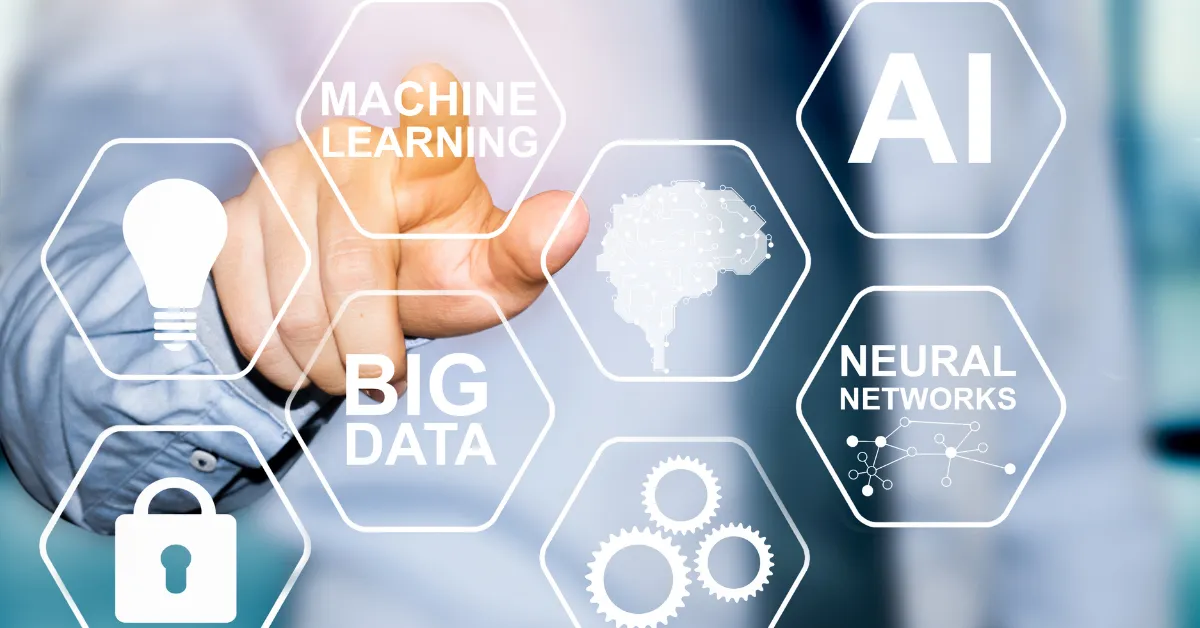
The long-term implications of AI on employment are complex and uncertain. However, here are some potential long-term impact of AI on employment:
- Job displacement: As AI technology advances, specific roles may become automated, leading to job displacement for some workers
- New job openings: AI may create new job openings in data science, machine learning, and robotics.
- Expertise prerequisites: As AI becomes more prevalent in the workplace, employees may need to acquire new skills and adapt to changes in job requirements to remain employable.
- Pay imbalance: The impact of AI on the job market could exacerbate pay disparities as workers in specific industries, like automation and machine learning, may be more vulnerable than others.
- Social and financial implications: The widespread adoption of AI in the workplace will have significant social and economic implications. It will lead to changes in the nature of work, requiring reevaluating valued skills and competencies. Education will be crucial, emphasizing digital literacy, data analysis, and collaboration with AI systems. Furthermore, this may affect the distribution of wealth, with some industries and individuals benefiting from AI while others face job insecurity and income disparities.
Despite the potential critical benefits of AI to society, companies and governments need to take proactive measures to moderate potential negative impacts on laborers and ensure the even-handed delivery of AI benefits. Considering the likely long-term suggestions of the innovation on work and workforces is critical.
What are the Advantages and Disadvantages of AI Replacing Jobs?
There are no advantages to AI replacing jobs in the human sense. However, AI will replace jobs that are repetitive and manual in nature, thereby widening the horizon for better-quality jobs for humans. The disadvantages AI replacing jobs is the obvious economic cost to humans who will lose their livelihood.
Can AI Create New Job Opportunities?
Yes, AI can most certainly create new and better-quality job opportunities. While AI might be the harbinger of some careers due to automation, it will also give rise to new careers like AI laws, ethics etc.
Be Prepared for the Future with Emeritus Courses
In conclusion, the rise of AI innovation has critical implications for the future of work. Despite the potential that machines have to replace some jobs, there are still plenty of opportunities for professionals in roles that require creativity, complex decision-making, and interpersonal skills. Figuring out what jobs will AI replace and upskilling is the only key to moving forward. To start your upskilling journey, you can check out online courses by Emeritus and take a step in the right direction.
Write to us at content@emeritus.org




